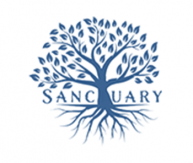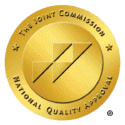
How to Stop Drug and Alcohol Cravings
The ability to manage drug cravings can be an essential recovery skill. If you’re not able to do this on your own, you may benefit from therapy, education, and/or certain prescription medications.
What Exactly Are Cravings?
Drug cravings are intense, powerful urges to use substances. When someone attempts to end their use of a drug that they have become addicted to, they may continue to experience cravings long after other withdrawal symptoms have subsided.
In some cases, drug cravings occur naturally, such as when a person first stops using a substance and their body struggles to adapt to its absence.
In other cases, cravings may be triggered by external events or circumstances. For example, if a person who is in recovery from alcohol use disorder (alcoholism) visits a bar or restaurant where they used to drink frequently, the sights, sounds, and even smells in that environment may cause them to experience alcohol cravings again.
Learning to manage alcohol cravings or other drug cravings is an important step on the path toward successful, long-term recovery from addiction.
Why Do Some People Crave Drugs When Others Don’t?
Addiction impacts different people in different ways. The same is true of withdrawal and recovery. Though there are common aspects to all of these experiences, there can also be considerable variations from one person to the next. One of these variations can involve the frequency and intensity of cravings.
Virtually everyone who goes through withdrawal will have some level of cravings. Some people may only experience minor urges, while others may struggle with extensive, long-lasting compulsions.
The likelihood that a person will have drug cravings can be influenced by many factors, including:
- Which drug they had become addicted to
- The amount and frequency of their prior substance abuse
- The effectiveness of their coping strategies
- Their ability to avoid triggers
- The type of treatment they receive
- Neurobiology and genetics
What Are the Ways to Stop Drug and Alcohol Cravings?
There unfortunately isn’t a simple way to eliminate drug and alcohol cravings. But there are a variety of steps you can take to manage these urges, so they don’t derail your recovery. Here are a few suggestions:
- Practice mindfulness: One of the core tenets of this practice is that you are not controlled by your emotions. Mindfulness can help you acknowledge feelings such as drug cravings, and then let these feelings go without acting upon them. Over time, this can help to release the hold that cravings have on your life.
- Stay active: Incorporating an enjoyable form of exercise into your daily schedule can yield myriad benefits, including helping you manage drug cravings. When you are actively engaged in an activity that motivates and energizes you, you will be less likely to focus on alcohol cravings or urges to abuse other substances.
- Know your triggers: Once you have identified the circumstances that can trigger drug cravings, you can change your behaviors to avoid these situations. If it’s impossible to avoid a trigger, you can at least prepare yourself ahead of time so that you can respond in a healthy manner, without resorting to substance abuse.
- Resist isolation: Sometimes the simple act of talking to someone else about what you’re going through can help you put your current challenges into proper context. Active addiction can be isolating, but connecting with others can be a valuable means of managing difficult emotions and protecting your recovery.
If Those Don’t Work, What Are My Treatment Options?
If you haven’t been able to overcome or manage your drug cravings on your own, don’t despair. When you find the right type of treatment, your life can get much better. Here are just a few of the many options that may help:
- Medication: Certain prescription medications can ease alcohol cravings as well as cravings for certain other substances, such as opioids. Depending on what’s best for you, medication can be either a short- or long-term solution.
- Cognitive behavioral therapy (CBT): CBT is a goal-focused form of psychotherapy. If your goal is to become better able to manage drug cravings, CBT sessions can help you identify maladaptive thoughts and beliefs that may be linked to these cravings. Then you can work with your therapist to make the changes that will reduce the impact of future cravings.
- Dialectical behavior therapy (DBT): Distress tolerance is one of four skills that are often taught through DBT sessions. The other three skills are mindfulness (which we mentioned in the previous section), emotion regulation, and interpersonal effectiveness. DBT sessions can be a valuable element of care for someone who has been experiencing strong drug cravings.
- Holistic services such as music therapy, art therapy, and food and nutrition education can help you make essential lifestyle changes and develop better stress management capabilities, both of which can be beneficial in terms of easing the impact of drug cravings.
At Sanctuary Treatment Center, we’ll work with you to identify the full scope of your needs, then select the therapies and services that can help you achieve personal goals such as learning how to effectively manage drug cravings.
Contact Our Drug And Alcohol Addiction Treatment Center in Los Angeles, CA
Sanctuary Treatment Center offers a full continuum of customized care for adults who have become addicted to alcohol and other drugs. Programming options at our addiction treatment center in Los Angeles include detoxification, inpatient care, outpatient rehab, and aftercare support. At every level of care, you can expect to receive personalized service and comprehensive support from a team of highly skilled professionals.
To learn more or to schedule a free assessment, please visit our Contact Us page or call us today.


